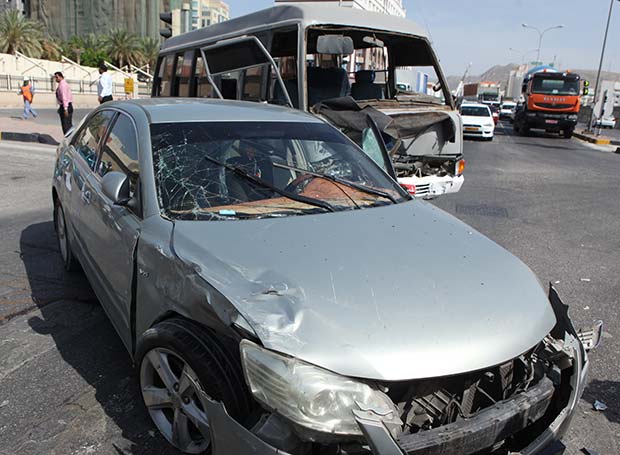
Muscat: Drivers in Oman have seen infrastructure improvements, but are experiencing an increase in reckless driving, a survey conducted by YouGov for Oman Qatar Insurance Company (OQIC Insured) showed .
According to the survey, 68 per cent of motorists experienced an increase in people speeding on the roads over the last six months and 75 per cent said they saw more distracted drivers than in the last six months (texting or talking on the phone, reading the newspaper etc.)
The survey also revealed that 78 per cent of drivers agreed that road infrastructure has improved in the last six months and on an average, people don’t feel that daily commutes now take longer than six months ago.
“We are proud to introduce this unique long term perception study in Oman.
“The results reflect the genuine apprehensions of Oman’s residents and point towards an urgent need for all stakeholders to work together to improve safety standards on Oman roads,” Ewen McRobbie, chief executive officer, Oman Qatar Insurance Company, said.
“We need to create effective road safety campaigns, which can help influence driving behaviour and convince motorists to adopt safe driving practices on a consistent basis,” he added.
While 59 per cent of respondents noted that they enjoyed driving on Oman’s roads more than six months ago, this compared with 21 per cent, who enjoyed it less, 41 per cent of respondents reported their commute time had remained unchanged or had become faster; with an unlucky 44 per cent reporting a longer drive to work.
Meanwhile, 33 per cent believed that Oman’s roads have become more challenging in the last six months, while only 53 per cent believed they had become less challenging.
According to Frederik Bisbjerg, executive vice-president, MENA Retail, Qatar Insurance Company, safer roads are a benefit for all, including families, businesses, government and insurers.
Mark Pudwell, business development and training manager at Competence HR, said traffic and road surveys are often valuable in gauging public perception of both driver culture and infrastructure.
“The road infrastructure in Oman has dramatically improved over the years and has given us much better roads and associated elements, such as lighting and traffic monitoring systems.
“However, recent events have highlighted that this improvement has been undertaken mainly in larger settlements and the interior road infrastructure is yet to benefit from governmental planners,” Pudwell said.
There is a negative effect that comes with improved road infrastructure and that is increased driving speeds on wide flat roads. Much has been done to regulate speed on our highways, but sadly this is no longer a deterrent for all drivers. A nominal fine is not enough, especially for those who can easily afford them.
Neelesh Sogani, a road safety expert in Muscat, said the increase in reckless and distracted driving, speeding, and texting or talking on the phone while driving could also be due to young drivers and their hunger for wanting to be on social media.
“The improved infrastructure eases driving comfort, allows drivers to accelerate and chase speed limits on roads,” Sogani added.